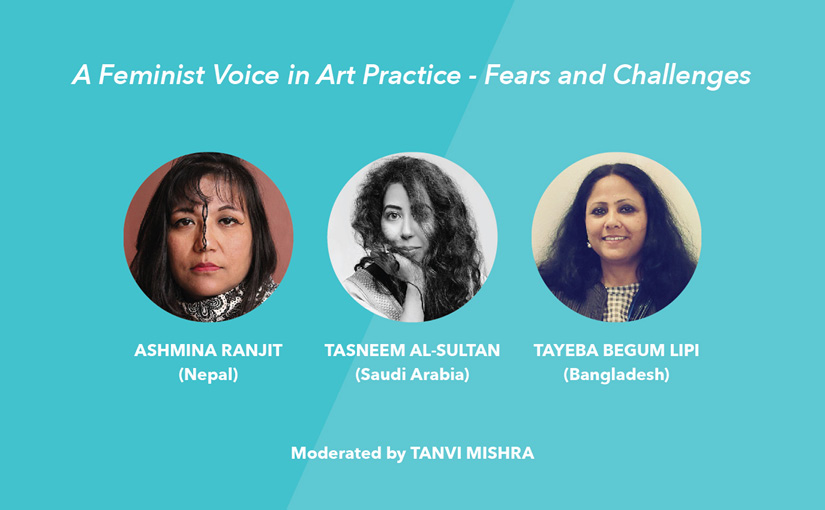by Sophia Rosenfeld
Thursday afternoon’s panel, “The Feminist Voice in Art Practice: Fears and Challenges”, featured three artists: Saudi-based photographer Tasneem Al-Sultan, Bangladeshi multimedia artist Tayeba Begum Lipi, and Nepali performance artist Ashmina Ranjit. Tanvi Mishra, one of the curators of Photo KTM 2016, moderated.
Though their practices and philosophies are wide-ranging, all three artists agree on this, at least: The personal is political, particularly for women artists.
For Al-Sultan, the personal and political meld in the intimate photos of Saudi women featured in her project “Saudi Tales of Love.” Sultan photographs her own family as well as other subjects, hoping to change the often narrow narrative around women’s lives in Saudi Arabia.
Many of Lipi’s recent pieces work with recreating everyday, often feminine objects by sculpting them from stainless steel razors and gold-plated safety pins. Items such as bikinis and cradles take on an otherworldly, metallic beauty. Yet these recreations are also imbued with a sense of danger, a comment on the hidden possibilities behind these women’s objects.
Much of Ranjit’s work has commented on gender in Nepal, including that most personal and yet political of experiences: menstruation. In a completed piece, Ranjit created a dress out of menstrual pads and publicly ‘bled’ out onto this dress, in a critique of how women’s periods are oftentimes shamed and hidden in Nepal.
All three artists also acknowledged an urgency in their work that may not be present in art that is less overtly concerned with sparking conversation around gender. “When I began doing performance art in Nepal, many people said that maybe I don’t belong here, that what I’m doing is not appropriate for here,” said Ranjit. Yet it is precisely this sort of response that shows just how important women’s political art can be in sparking conversations and, hopefully, social change.

